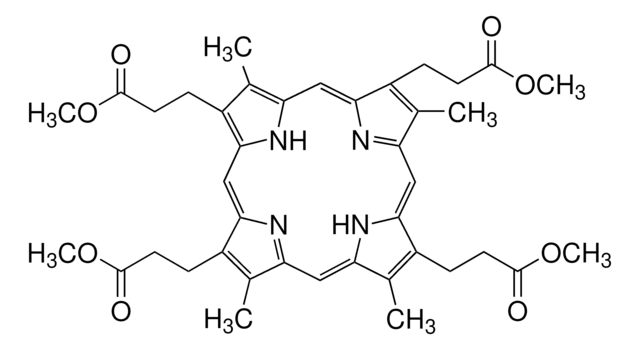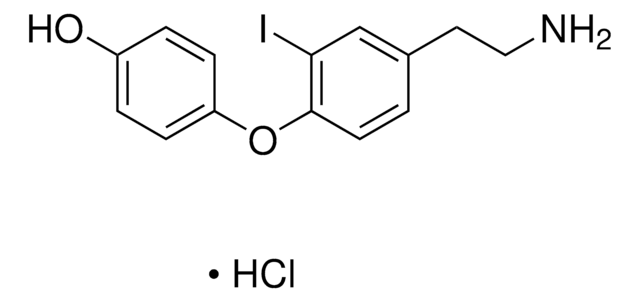D0629
3,5-Diiodo-L-thyronine
thyroid hormone analog
Synonym(s):
3,5-Diiodo-4-(4-hydroxyphenoxy)-L-phenylalanine, 3,5-T2, O-(4-Hydroxyphenyl)-3,5-diiodo-L-tyrosine
About This Item
Recommended Products
Quality Level
Assay
≥99% (HPLC)
form
powder
technique(s)
ligand binding assay: suitable
color
white to off-white
mp
255 °C
storage temp.
−20°C
SMILES string
N[C@@H](Cc1cc(I)c(Oc2ccc(O)cc2)c(I)c1)C(O)=O
InChI
1S/C15H13I2NO4/c16-11-5-8(7-13(18)15(20)21)6-12(17)14(11)22-10-3-1-9(19)2-4-10/h1-6,13,19H,7,18H2,(H,20,21)/t13-/m0/s1
InChI key
ZHSOTLOTTDYIIK-ZDUSSCGKSA-N
Looking for similar products? Visit Product Comparison Guide
Biochem/physiol Actions
Hazard Statements
Precautionary Statements
Hazard Classifications
Aquatic Chronic 3
Storage Class Code
11 - Combustible Solids
WGK
WGK 3
Personal Protective Equipment
Choose from one of the most recent versions:
Already Own This Product?
Find documentation for the products that you have recently purchased in the Document Library.
Customers Also Viewed
Our team of scientists has experience in all areas of research including Life Science, Material Science, Chemical Synthesis, Chromatography, Analytical and many others.
Contact Technical Service











